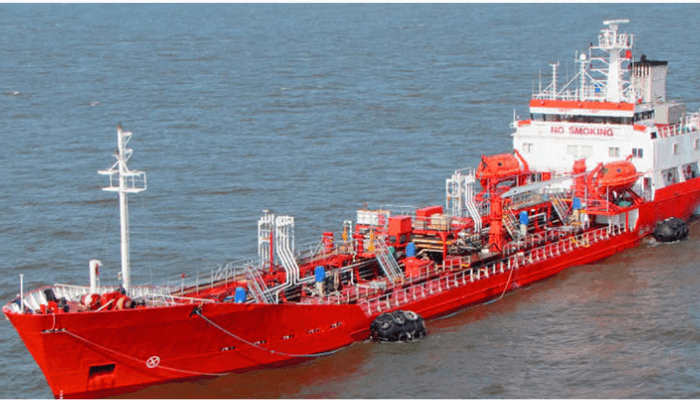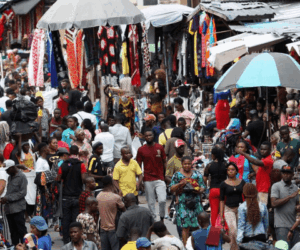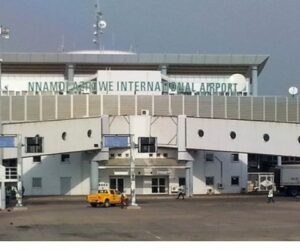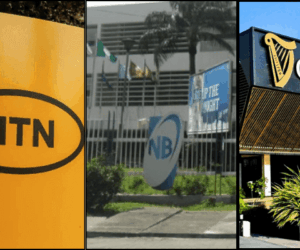…Two more Dangote shipments en route
…Crude supply remains major hurdle
Nigeria’s Dangote Petroleum Refinery has exported petrol to the United States for the first time in history, marking the nation’s emergence as a net exporter of refined products beyond Africa and Europe.
The milestone coincides with Nigeria’s emergence as Africa’s trade surplus leader, recording a positive balance of $8.4 billion in the first six months of 2025.
The breakthrough shipment, carried aboard the tanker Gemini Pearl, discharged at Sunoco’s Linden terminal in New York Harbour, according to vessel-tracking data and sources cited by Reuters.
Read also: Build refineries, compete, Dangote tells petroleum marketers.
The cargo, about 320,000 barrels of gasoline, was sold by Geneva-based Mocoh Oil to Vitol, the world’s largest independent oil trader, which then resold most of it to US fuel distributor Sunoco.
Experts say this development underscores both the commercial reach of the $20 billion refinery and its technical achievement in producing petrol that meets stringent American fuel standards.
From delays to global markets
The Dangote Refinery, a 650,000-barrel-per-day mega-complex located on the outskirts of Lagos, was touted for more than a decade as the project that would transform Nigeria’s energy landscape.
After years of construction delays and financing hurdles, the refinery began test runs in 2023 and ramped up output through 2024, with exports of diesel and jet fuel mainly directed to Europe and West Africa.
Petrol output took longer to stabilise due to technical calibration and the challenge of meeting international quality specifications. The arrival of the first petrol cargo in the US marks the clearest signal yet that the refinery has overcome those hurdles.
“This shipment demonstrates that Dangote Refinery has reached a new operational phase,” said a trader with knowledge of the deal. “The US is one of the most competitive and tightly regulated fuel markets. If Dangote can place volumes there, it can sell anywhere.”
A reshaped trade map
Nigeria has long been Africa’s top crude exporter, but has spent billions annually importing refined products because of the collapse of its state-run refineries. The commissioning of Dangote’s private plant promised to reverse that paradox.
Industry analysts say the refinery’s gasoline output could significantly reduce imports into Nigeria and neighbouring West African states, with surplus cargoes bound for Europe, the Americas, and beyond.
“West Africa has been a structural importer of gasoline for decades,” said Tunde Adelakun, head of Downstream Research at Sofidam Capital. “Dangote changes that equation. Its scale allows it not only to meet domestic needs but also to export competitively into Atlantic Basin markets.”
The first US-bound shipment suggests the refinery’s output is not just adequate for African demand but competitive in the global arena.
Read also: TUC rejects 5% tax on petroleum products, warns of strike
The players behind the deal
The identity of the companies behind the groundbreaking cargo had been a mystery until now. Reuters confirmed that Mocoh, a mid-sized Geneva trading firm with a long history in African oil markets, sold the initial load to Vitol.
Mocoh, earlier this year, signed a supply partnership with Dangote Refinery, positioning itself as a key intermediary for marketing its products internationally. Vitol, with its deep liquidity and logistics network, was able to move the cargo swiftly into the US market.
Vitol then placed most of the gasoline with Sunoco, a major US distributor with significant storage and retail assets in the northeast. The Linden terminal, where the cargo was delivered, is one of the key gateways for fuel into the New York metropolitan area.
Neither Mocoh, Vito,l nor Sunoco commented publicly on the transaction.
More cargoes on the way
Ship tracking data also showed that two further Dangote gasoline shipments are already en route to the US. The MH Daisen is carrying the second cargo, sold by Glencore to Shell, and is due to arrive in New York Harbour around September 19.
A third tanker, the Seaexplorer, is scheduled to deliver another Mocoh-sourced cargo around September 22, with Vitol again as the buyer.
Industry sources caution, however, that destinations could still shift depending on market dynamics. “Gasoline trade is highly opportunistic,” one shipping analyst said. “If margins improve in Europe or Latin America, cargoes could be diverted mid-voyage.”
Still, the back-to-back scheduling of shipments to the US suggests traders are confident that Dangote’s product will find steady demand in one of the world’s most liquid fuel markets.
Implications for Nigeria
For Nigeria, the milestone comes at a politically sensitive time. The country has struggled with petrol subsidies, import bills and chronic fuel shortages for decades.
President Bola Tinubu’s administration has championed the Dangote project as a symbol of industrial self-sufficiency and a buffer against foreign exchange (FX) volatility.
Aliko Dangote, president and chief executive of Dangote Petroleum Refinery, has repeatedly argued that the refinery will save Nigeria up to $10 billion annually in import costs while generating FX through exports. The refinery’s success, however, is not only an economic milestone but also a reputational one.
“The arrival of Nigerian gasoline in the US is more than a trade story,” Adelakun, earlier quoted, said. “It signals that Nigeria is no longer just a crude supplier but a credible participant in the global refined product market.”
Read also: Imagine a 30-day halt in petroleum product imports across Africa
Challenges remain
Despite the optimism, challenges loom. The refinery’s feedstock supply relies heavily on Nigerian crude, which has faced production shortfalls and pipeline disruptions. Pricing disputes with local marketers have also slowed the pace of domestic supply.
“The Dangote Refinery has positioned Nigeria as a primary source of affordable petrol feedstock for West Africa, despite the refinery importing over 60 percent of the crude oil it processes,” the refinery said in a advertorial published on BusinessDay on 15 September 2025.
Other experts said competition in export markets remains fierce, particularly with US refiners operating at scale and European refiners defending their traditional outlets in West Africa.
“Breaking into the US market is impressive,” said Adelakun. “Staying there will require consistent quality, reliable supply, and pricing that can compete with entrenched players.”









